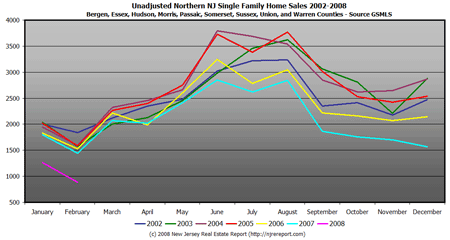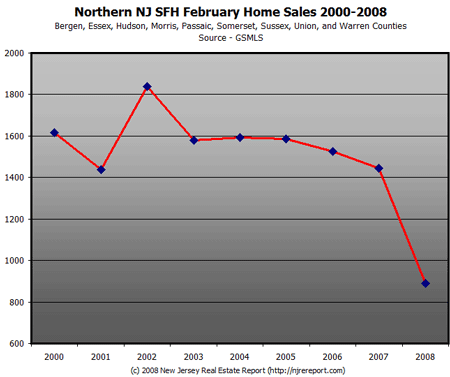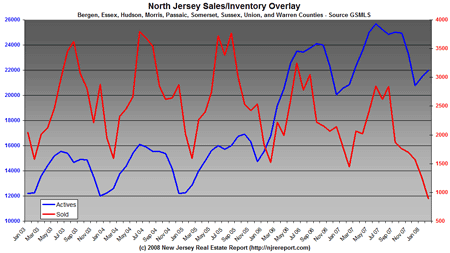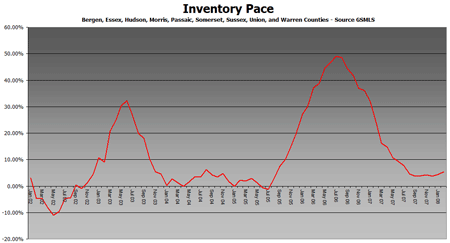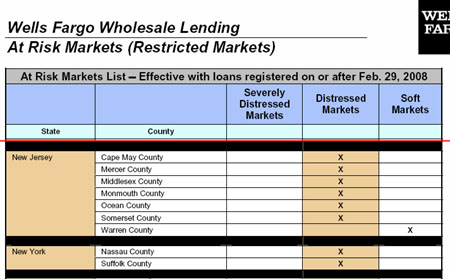From the Times Trenton:
Revised job figures reveal picture isn’t so pretty in Jersey
New Jersey’s economy isn’t as healthy as state economic officials thought as recently as a few weeks ago.
Last month, 9,500 jobs were lost, and revised figures released yesterday by the state’s labor department reveal New Jersey created a mere 4,700 positions last year — well below the 29,400 new jobs originally estimated. The unemployment rate increased 0.3 percentage points in January, to 4.5 percent, still below the national jobless rate of 4.9 percent.
“The job numbers are just awful, and they reflect New Jersey’s standing in the economic world, which is not very high,” said Philip Kirschner, president of the New Jersey Business & Industry Association, a statewide business advocacy group. “Jobs are not being created here, and I think part of it is the perception that this is a state that has not adopted business-friendly policies, and can’t get its own fiscal house in order.”
(Gov. Jon) Corzine’s budget speech Tuesday, which proposed slashing spending by $500 million and state payrolls by 3,000 people, “is the first step toward bringing fiscal stability to the state,” Kirschner said.
“It was shocking — we slipped from slow growth to no growth over the past year, and the decline in January was far worse than we had anticipated,” said Rutgers economist James Hughes.
From the New Jersey Department of Labor and Workforce Development:
Annual Benchmark Revision of Data Indicates Slower Job Growth in 2007
Revised employment figures for 2007 show that New Jersey’s economy produced jobs at a slower pace than originally estimated. Based on newly benchmarked data, New Jersey employers added 4,700 jobs, over the year, December 2006 to December 2007, a downward revision from the originally estimated gain.
“While the original surveys overestimated the number of jobs created in 2007, today’s report shows that employment trends over the year followed the previously-reported pattern. New Jersey’s economy added 15,300 jobs over the final eight months of 2007, after employment declined by 10,600 jobs in the first four months of the year,” said Labor Commissioner David J. Socolow. “While the overall state economy experienced moderate job growth during the latter part of last year, there were significant job losses in the construction and financial sectors, due to the national downturn in the housing market and the credit crunch stemming from failures in the mortgage industry.”
Previously released nonfarm employment estimates, including those for 2007, have been revised to new employment benchmarks required annually by the United States Bureau of Labor Statistics. The process re-anchors monthly sample-based survey estimates to full-universe counts of employment, primarily derived from records of the unemployment insurance tax system. As a result of the benchmark process, the estimated level of nonfarm payroll employment in New Jersey was revised downward by -0.6 percent. This year’s revision was in line with those made in prior years. Benchmark revisions over the past ten years have averaged plus or minus 0.7 percent. Nationally, nonfarm employment estimates for 2007 were revised downward by -0.2 percent.
…
As a result of the annual adjustment process — conducted each year at this time by every state — the previously announced 29,400 seasonally adjusted job gain over the December 2006 to December 2007 period has been revised downward to 4,700. The revised gain from December 2005 to December 2006 was 29,900.
